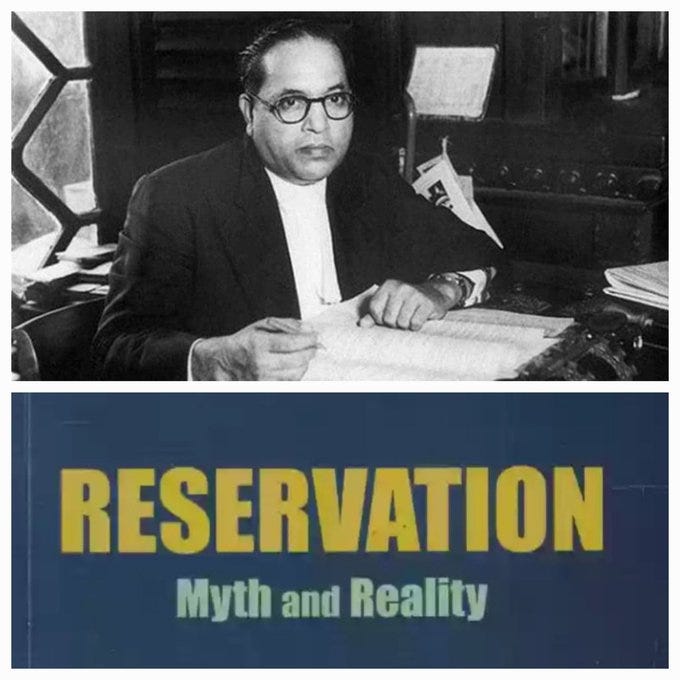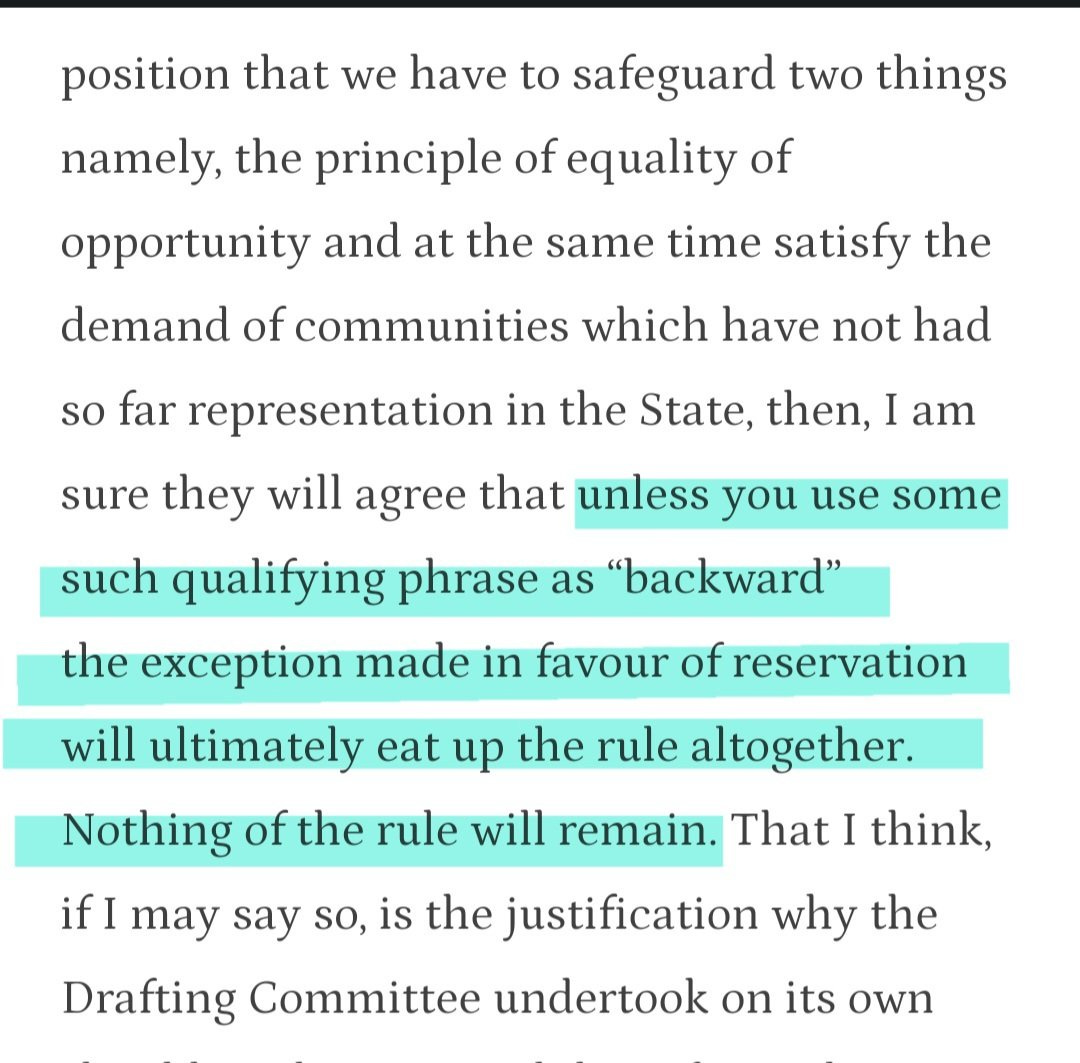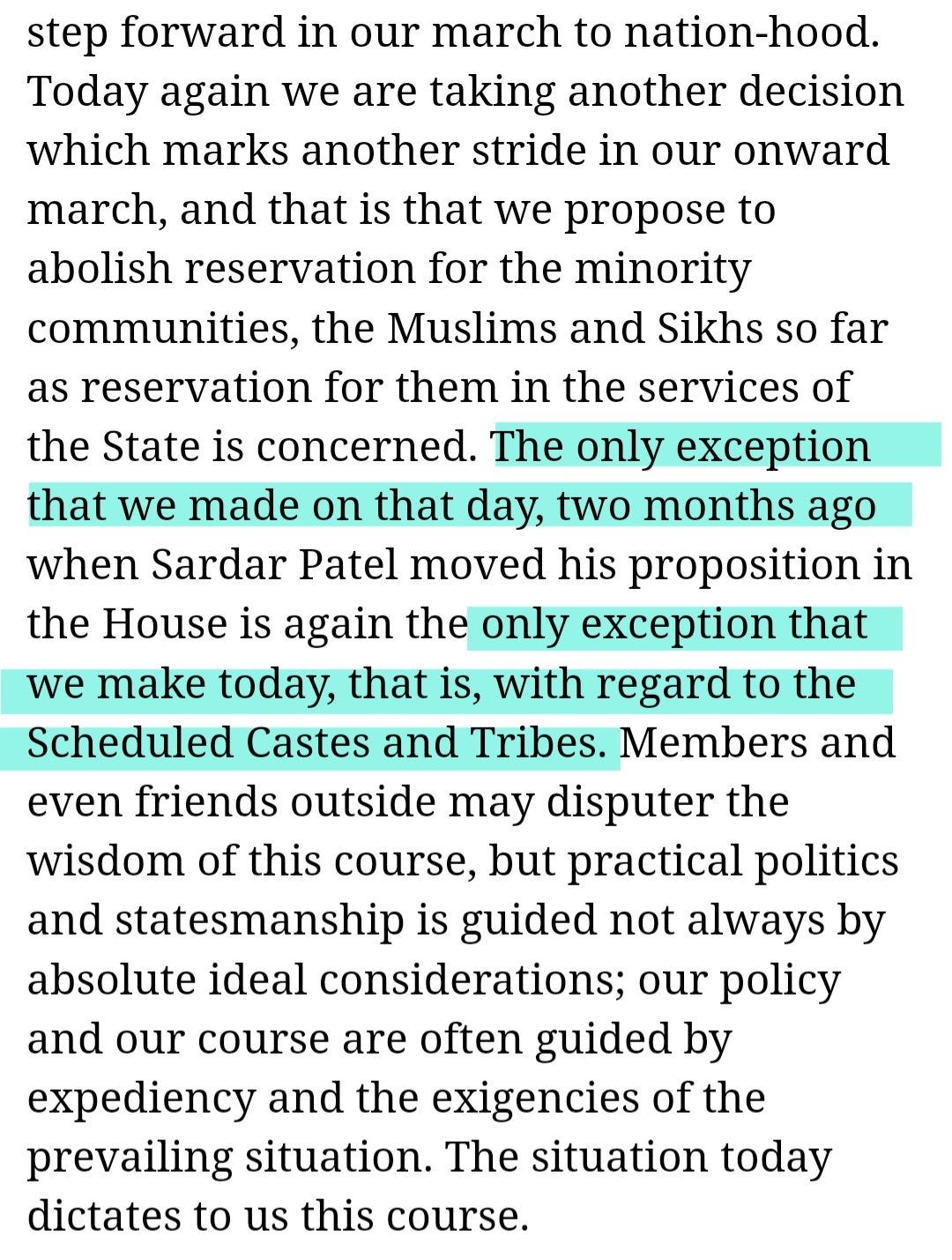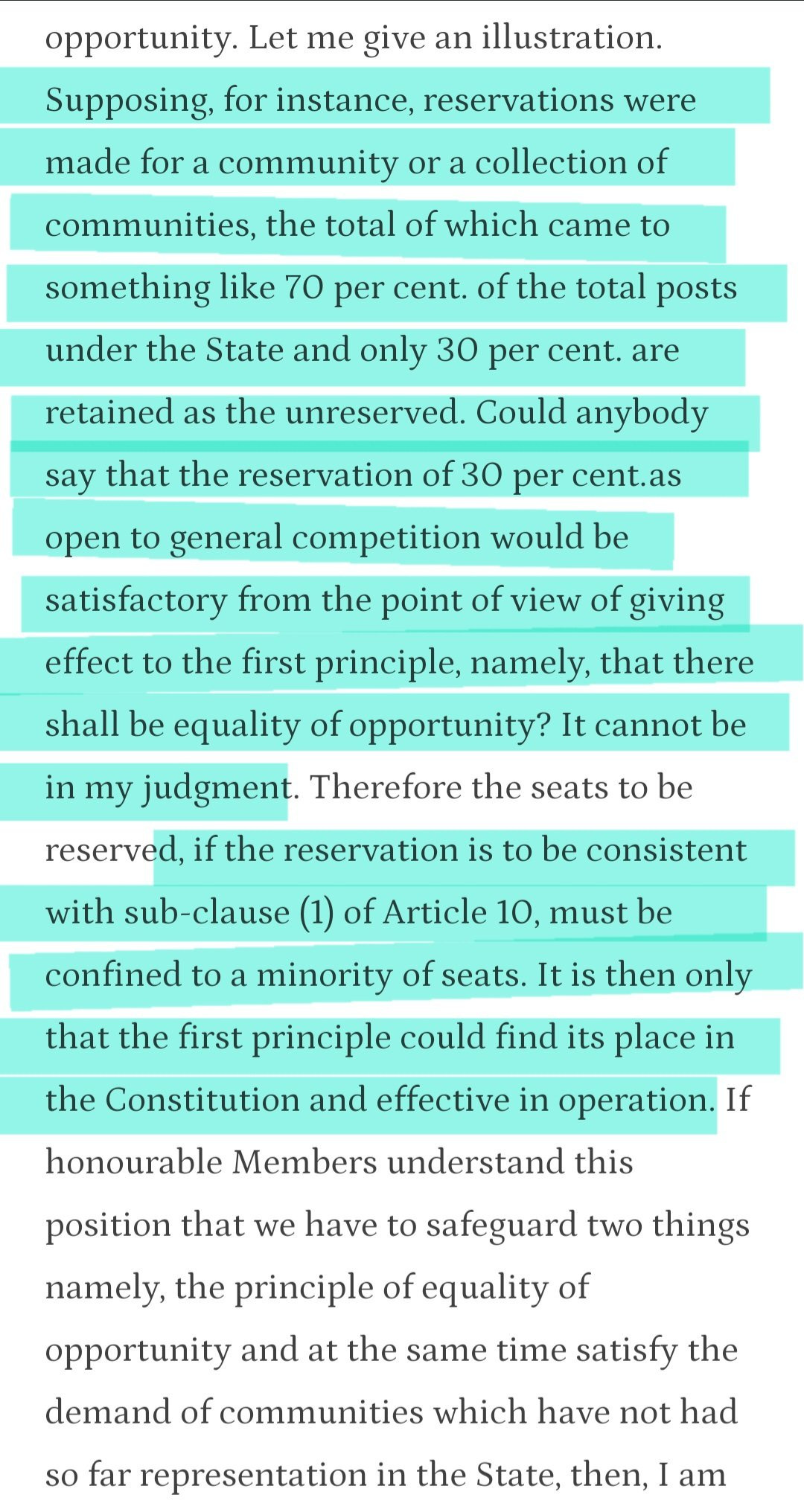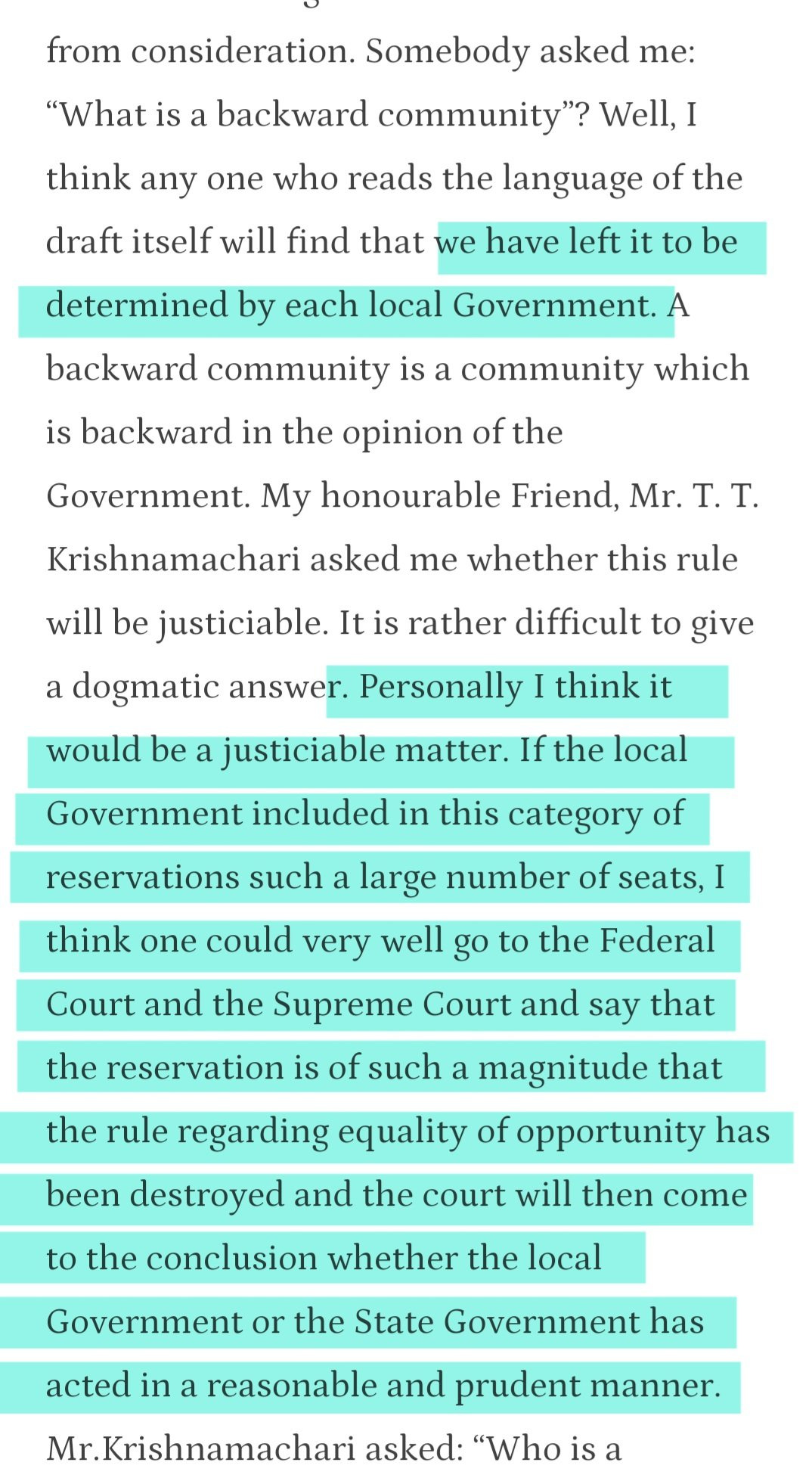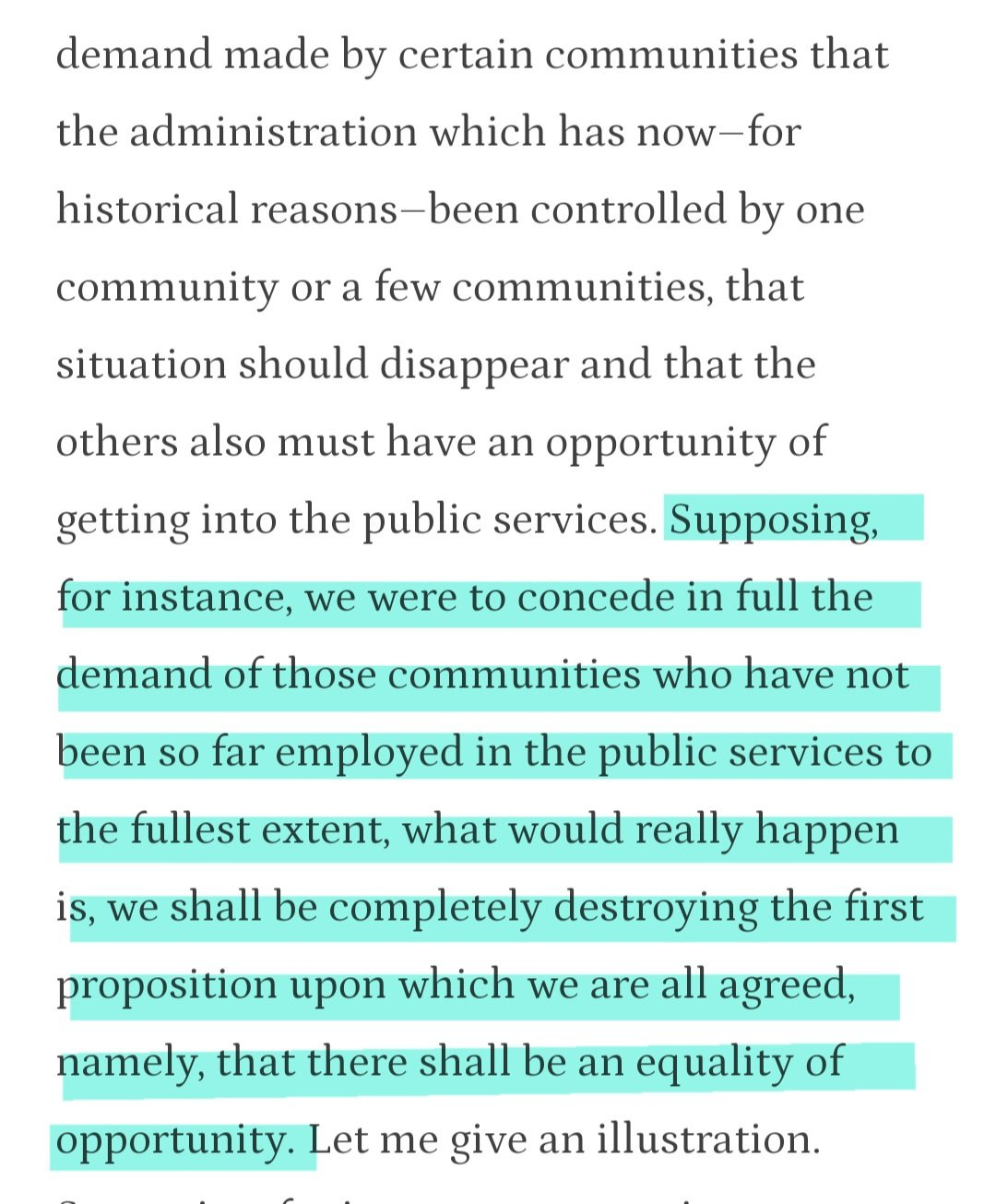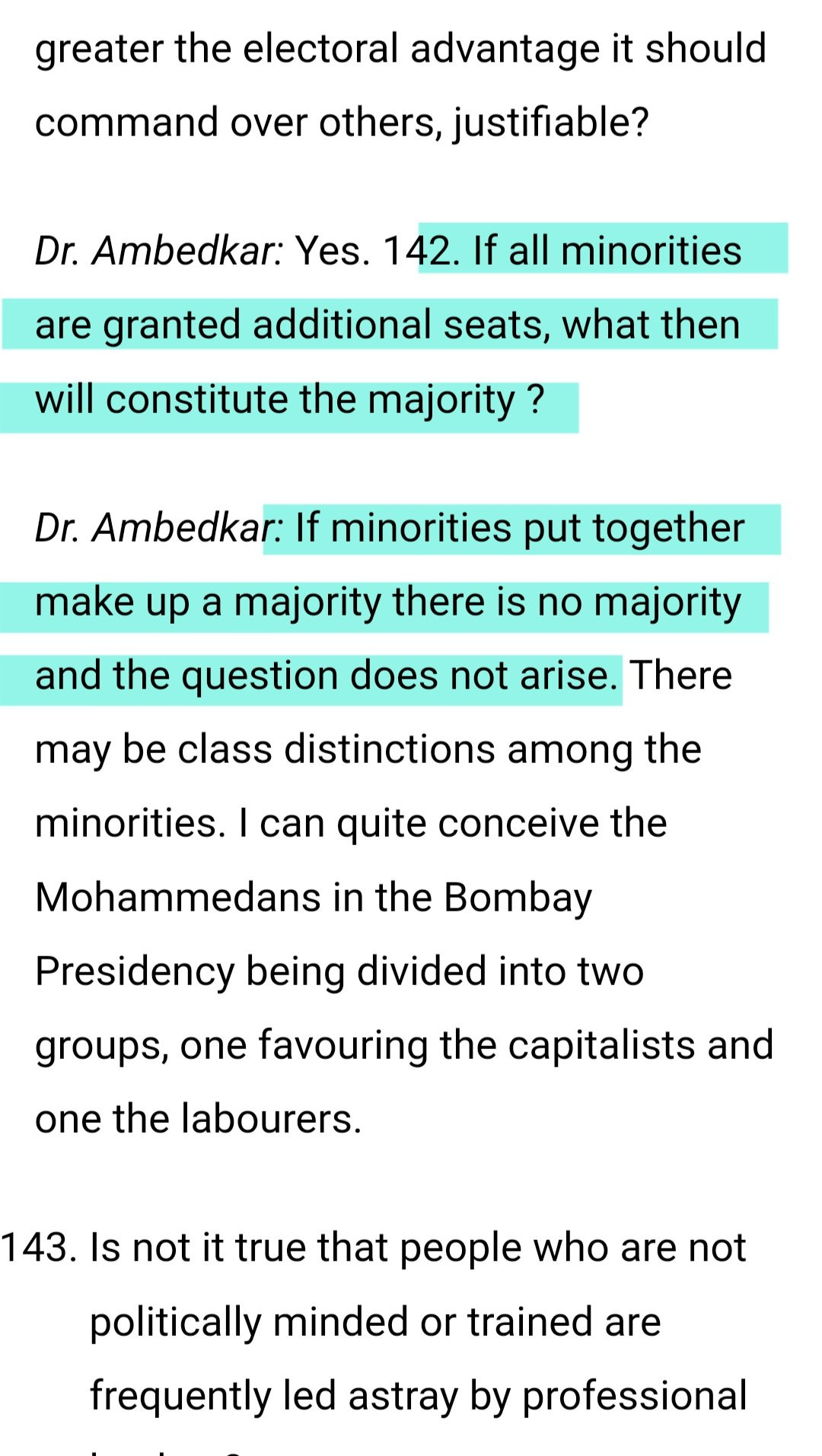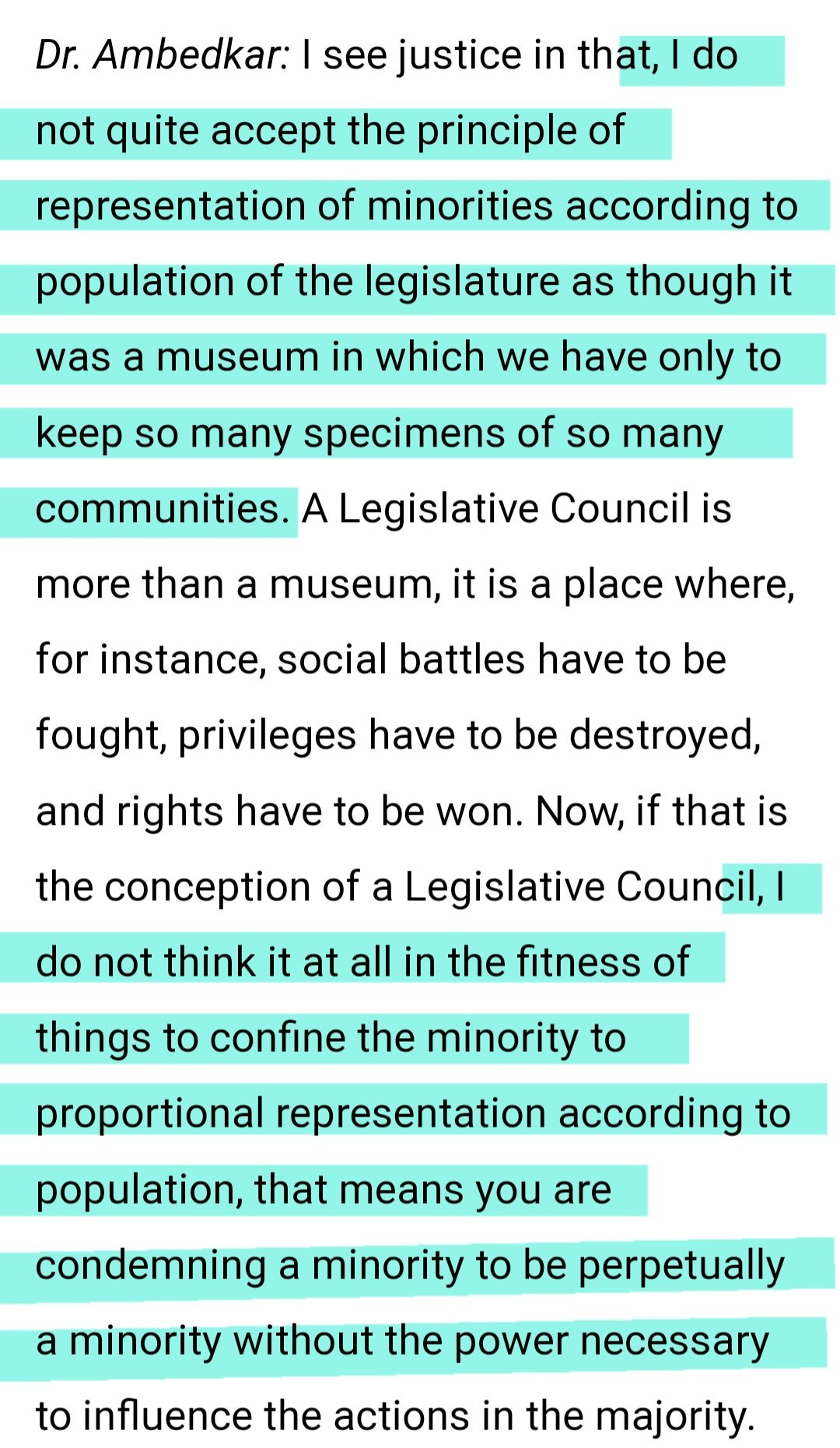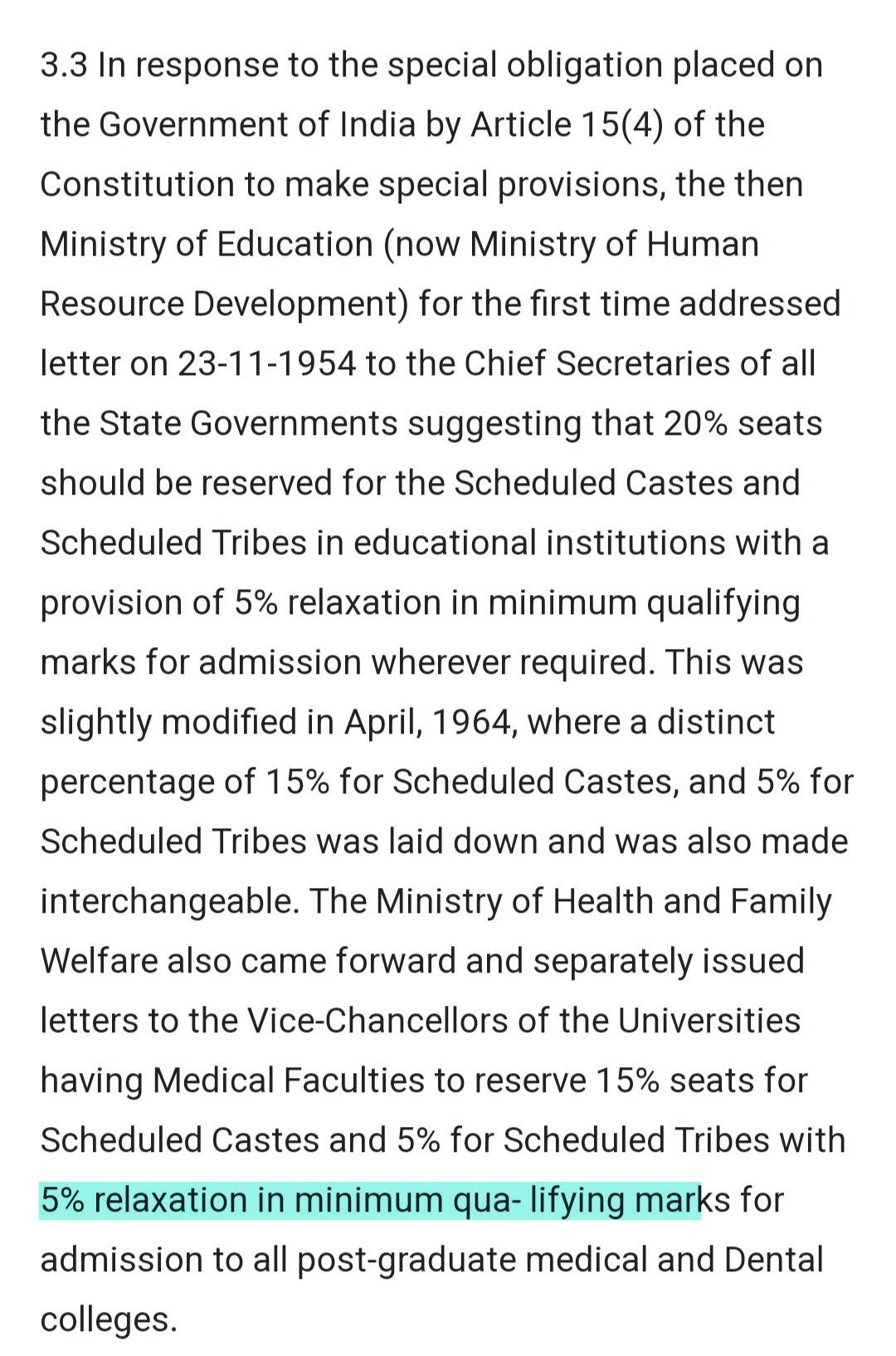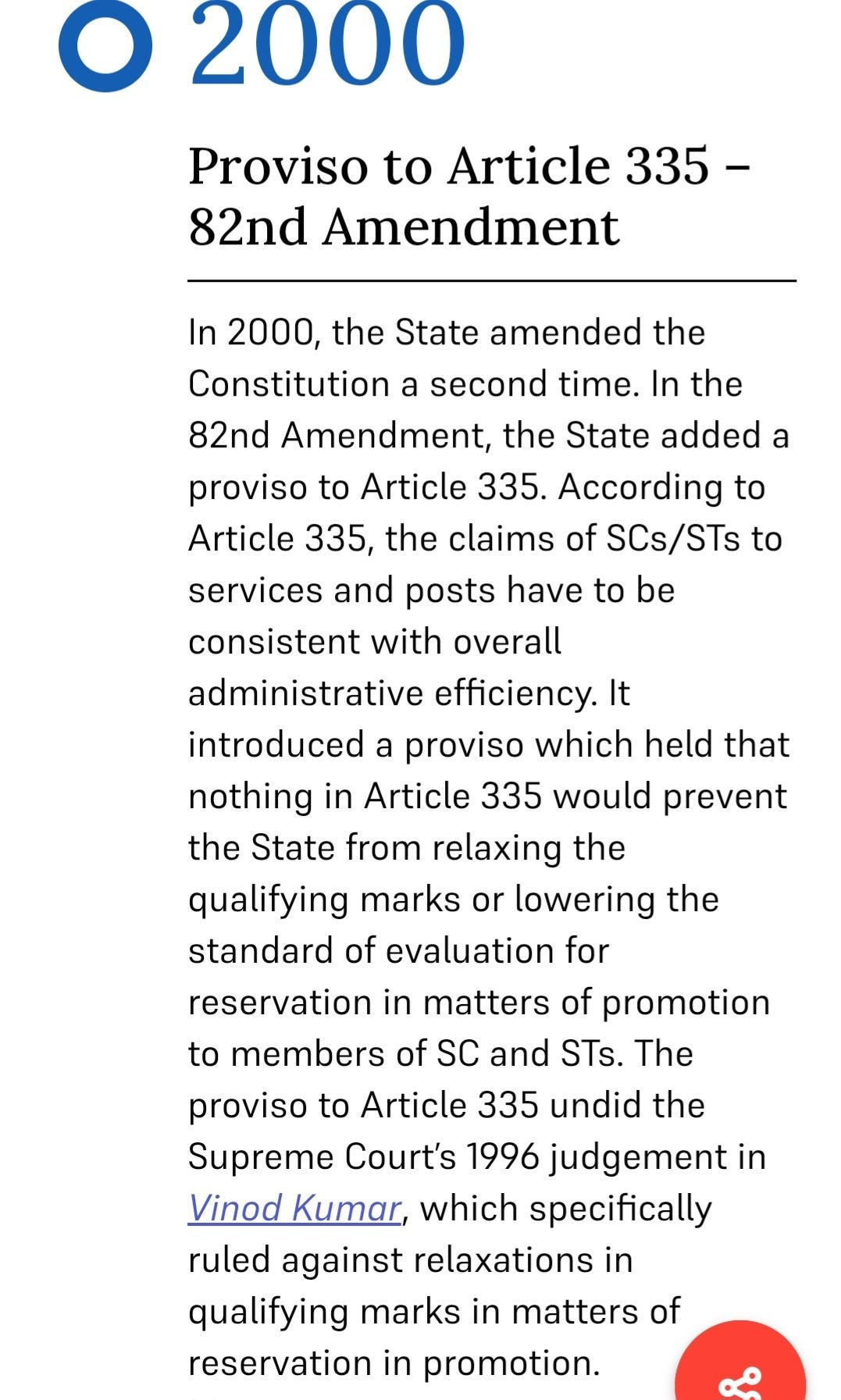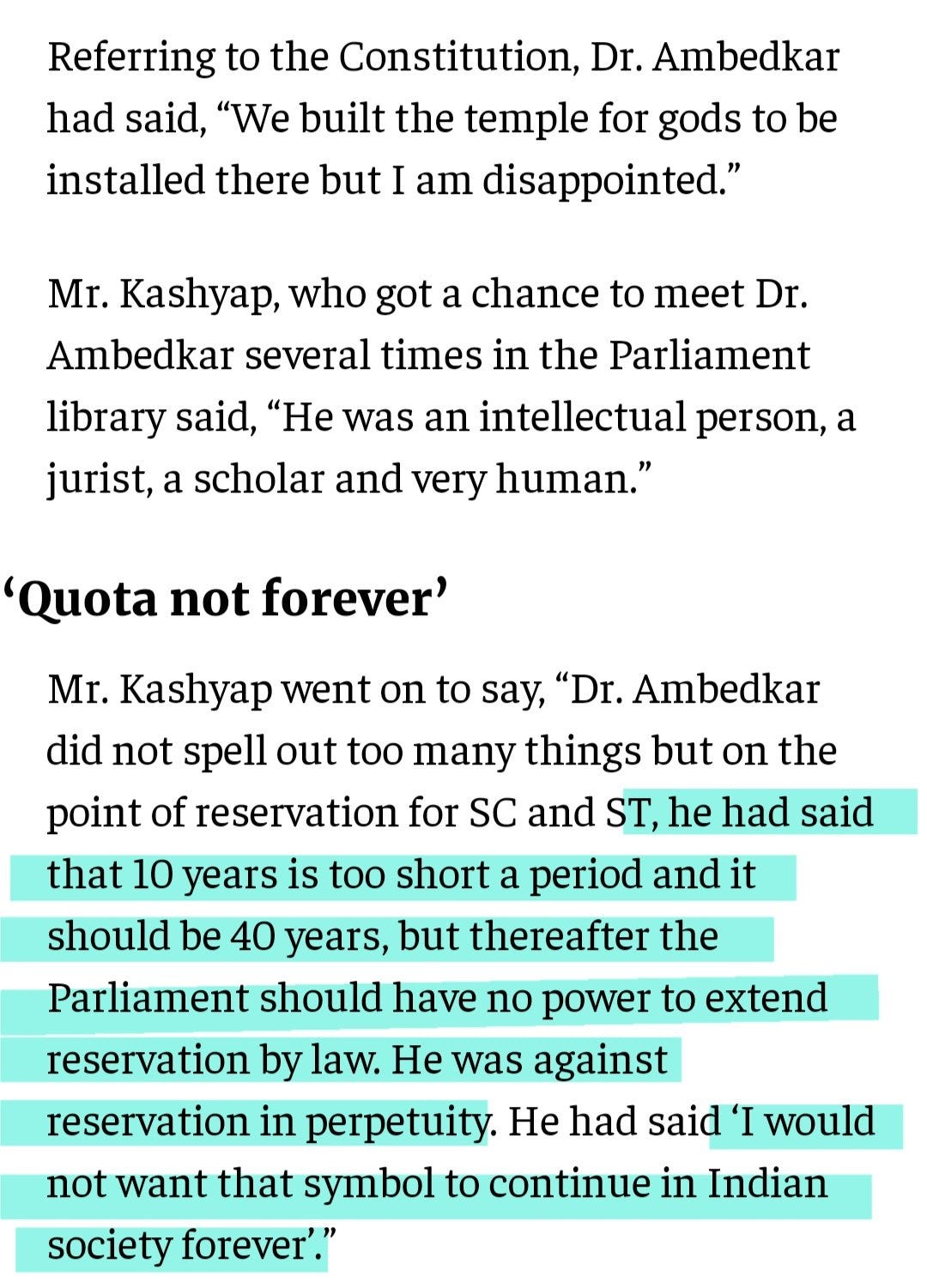Article 6: The Myth of Ambedkar And Reservation
Uncovering Historical facts that have been hidden
It has always been projected that Dr. Ambedkar wanted and would have supported the current reservation policies in India. The truth however, is completely different.
When the clause of reservation was inserted into the constitutional articles, many caveats were put forth. Dr. Ambedkar himself had outline certain conditions with regards to the implementation of the reservation system. However, most of the people are unaware of his actual views as they are constantly misguided by the media, politicians and social activists.
Here we will debunk some of the common myths and perceptions about Dr. Ambedkar’s views on reservation.
Myth 1:
Dr. Ambedkar provisioned reservation as a "constitutional right".
Truth:
The fundamental right which was provisioned in the constitution was- "Right to equality for all citizens, irrespective of caste, religion, gender, state etc."
Reservation, in fact, was designed as an EXCEPTION to this fundamental right.
Dr. Ambedkar himself said this and made it clear that this exception (i.e. reservation), should not become a rule. The other members of the constituent assembly also believed reservation to be an exception to the “fundamental right to equality”.
Myth 2:
Dr. Ambedkar wanted "proportional quota".
Truth:
Dr. Ambedkar always maintained that it was important to find a balance between "equality of opportunity" and "representation" of neglected communities. He had said-"To make sure equality is effective and operational, reservation has to be confined to a minority of seats".
He also said that “a larger share of reservation, was not fair, in his own judgement”.
Myth 3:
Increasing reservation via parliament and constitutional amendments was provisioned by Dr. Ambedkar.
Truth:
Dr. Ambedkar had, in fact, cautioned against indiscriminate increase in reservation.
He had said that, if ever, reservation is increased to a larger share of seats (more than minority share), it could be challenged in courts, on the basis that the fundamental right to equality of opportunity was destroyed.
He had also advised that local state governments should be careful and act reasonably when defining reservation%, so as, people are not deprived of their fundamental right to equality.
Myth 4:
Dr. Ambedkar would have wanted and supported the "Bahujan movement".
Truth:
Dr. Ambedkar was completely against "majoritarian" politics.
These were his statements:
1. "We should not concede fully to all demands of communities not represented so far, as it would destroy equality".
2. "If we keep giving seats to minorities, they all together become majority, they aren't really a minority".
3. "The seats should NOT be proportional to population as it means condemning a minority to forever remain a minority, without any power".
Myth 5:
Dr. Ambedkar gave all the possible relaxations in terms of recruiting criteria for SC/ST.
Truth:
Dr. Ambedkar had originally provisioned for only 5% relaxation in qualifying marks. He also added article 335 in constitution, which mentioned that claims of SC/ST should be taken into consideration but it should be consistent with maintaining the efficiency of the administration (i.e. the quality should not be compromised). This article was, however, amended in 2000 to reduce the qualifying criteria for SC/ST.
Myth 6:
Dr. Ambedkar wanted reservation till perpetuity.
Truth:
Dr. Ambedkar, actually, had visualized reservation to be a "temporary" provision. In his personal capacity, he had expressed that, although 10 yrs were a short period, reservation beyond 40 years should have been barred, by any means (legal/political).
He had said-"I do not want this symbol to continue in Indian society, forever".
Note: All the 389 members of the constituent assembly had agreed for the arrangement of reservation, only on the belief that it was a temporary provision. Reservation was never meant to continue till perpetuity.
References:
1. 1948 constituent assembly debates (volume 7)
https://www.constitutionofindia.net/debates/30-nov-1948/#7.63.205
2. Dr. Ambedkar with the Simon Commission (Babasaheb Ambedkar’s Writings and Speeches, Vol. 2. Page 459
https://velivada.com/2019/09/03/dr-babsaheb-ambedkar-and-simon-commission/
4. 1949 constituent assembly debate 14 Oct, Volume 1: https://indiankanoon.org/doc/1795359/


